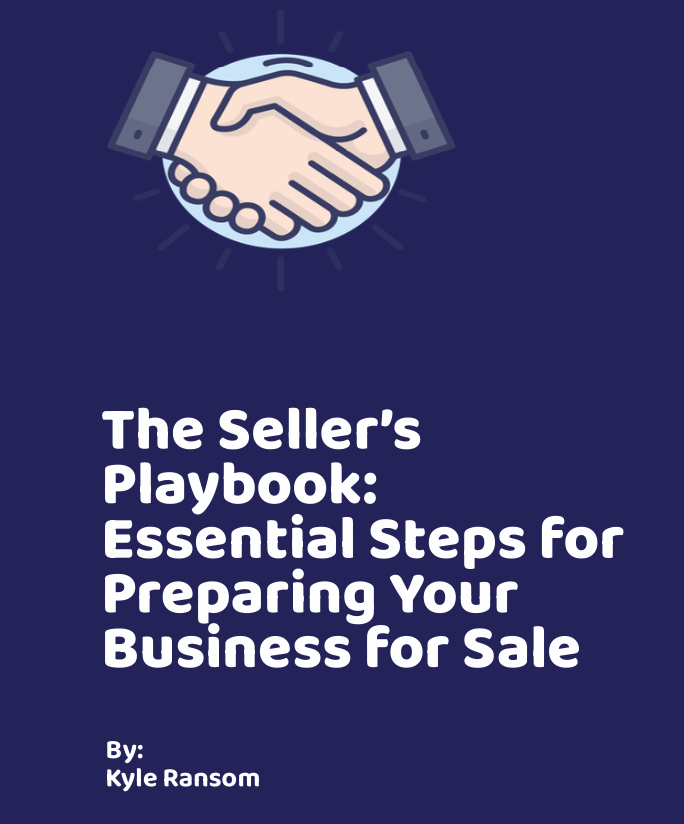
Why seller financing small business deals are gaining steam
Selling your business is a big deal—emotionally and financially. And if you’re like many business owners, you want to get the best deal without waiting forever or accepting a lowball offer. That’s where seller financing small business deals come in.
Instead of waiting for an all-cash buyer, you can offer financing to the buyer yourself. This means you receive part of the payment upfront and the rest over time—often with interest. It spreads out the risk and opens the door to more potential buyers.
Seller financing small business exits can be a win-win. The buyer gets easier access, and you generate passive income post-sale while potentially increasing your total exit value. Sounds like a win? That’s because it can be—with the right structure.
In today’s lending world, banks often don’t lend easily to buyers without strong credit or collateral. Offering financing yourself can help close gaps, especially in tight credit markets.
And let’s not forget: if you’re leaving the game but still want your legacy to thrive, seller financing lets you pick and support the best buyer—not just the richest one.
The nuts and bolts of seller financing
So how does seller financing actually work in a sale? It starts with you (the seller) acting as the lender. You agree to accept a percentage of the purchase price upfront—say 70%—and then finance the remainder over 3–7 years, usually with interest between 5–8%.
Terms can flex depending on the deal. Payments might be monthly or quarterly. Some deals include a balloon payment at the end. Others tie repayment to business performance. A promissory note documents the loan, and it’s often secured with the business assets.
The beauty? You’re in the driver’s seat. You can get creative. Structure payments in a way that minimizes your tax hit, maximizes your return, and supports a smooth ownership transition.
Why seller financing gives you leverage
One of the best reasons to consider seller financing small business sales is simple: control. Instead of being at the mercy of banks or brokers, you choose who buys your business and on what terms.
It also attracts a broader buyer pool. Many buyers, including younger entrepreneurs, veterans, or those with strong skills but limited capital, may love your business but lack bank-friendly financials. Seller financing opens the door for them—and lets you command a higher price.
And here’s the kicker: deals with seller financing tend to move faster. Reduced bank friction means fewer delays and often fewer deal-breakers. You get to the finish line quicker—and with better terms.

Risk management: how to protect your interest post-sale
Worried about risk? Good—you should be. But don’t let fear kill a great opportunity. Instead, structure protections into the deal:
- Use a secured promissory note against business assets.
- Include personal guarantees when appropriate.
- Set clear default clauses and performance metrics.
- Link incentives or penalties to buyer behavior and payment timing.
You can also require the buyer to carry key-person life insurance or maintain business continuity plans. These protect your income stream if things go sideways. And yes—get a great lawyer to draft your documents.
Oh, and don’t go in blind. Vet the buyer’s background, experience, and financials just like a bank would. Due diligence minimizes surprises down the road.
What is seller financing in a small business sale?
Seller financing means the owner agrees to finance part of the sale price over time, rather than being paid in full at closing. The buyer makes regular payments—usually with interest—under agreed-upon terms, using a promissory note.
How much of the sale price is typically financed by the seller?
It varies, but most seller-financed business deals cover between 10% to 50% of the total sale price. The balance is usually paid in cash or through third-party loans.
Is seller financing safe for sellers?
It can be if structured well. Use secured notes, collateral, personal guarantees, and solid legal agreements. Also, thoroughly vet the buyer and use proper due diligence before signing anything.
Do buyers prefer seller financing?
Yes—especially buyers with great business skills but limited access to capital. It makes deals more accessible and shows you believe in the future of the business under their leadership.
Can seller financing reduce taxes for sellers?
Yes. Since payments are spread over time, it may reduce your immediate tax burden and let you take advantage of installment sale taxation under IRS guidelines. Always consult a tax advisor for specifics.
Final thoughts on seller financing small business deals
If you’re serious about selling and want speed, flexibility, and a wider pool of buyers, it’s time to strongly consider seller financing small business deals.
With the right terms, this strategy can not only help you sell faster, but also boost your overall return on the deal. As long as you protect yourself with smart structures, seller financing can turn into an income-generating machine after you walk away from the day-to-day.
Looking to smooth out your exit and unlock higher deal value in the business selling market? Work with someone who knows how to craft expert-level SBO deal structures that reduce risk and maximize rewards.
Ready to explore how this could work for your unique business? Let’s talk—it might just be the smartest choice for your next chapter.


No responses yet